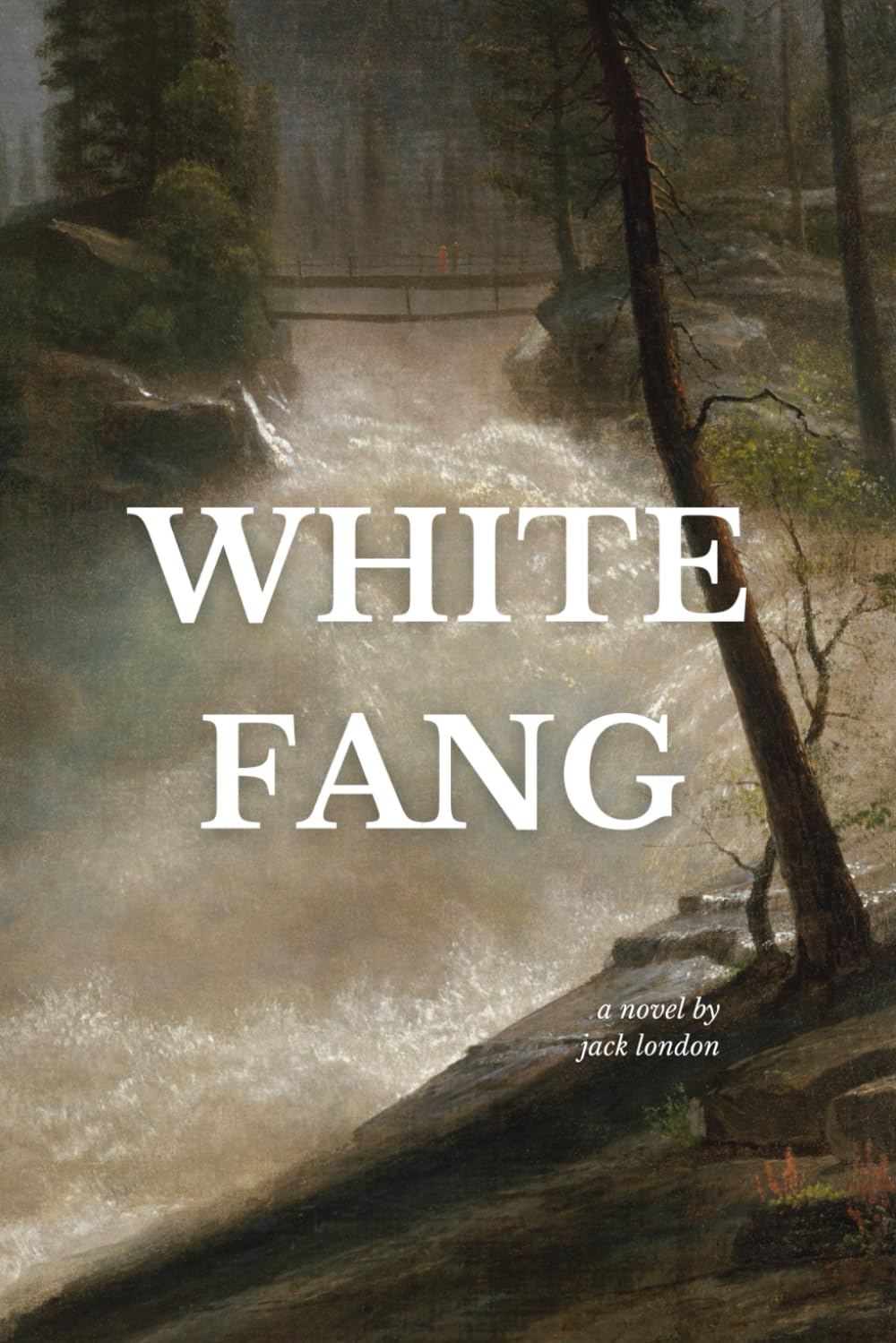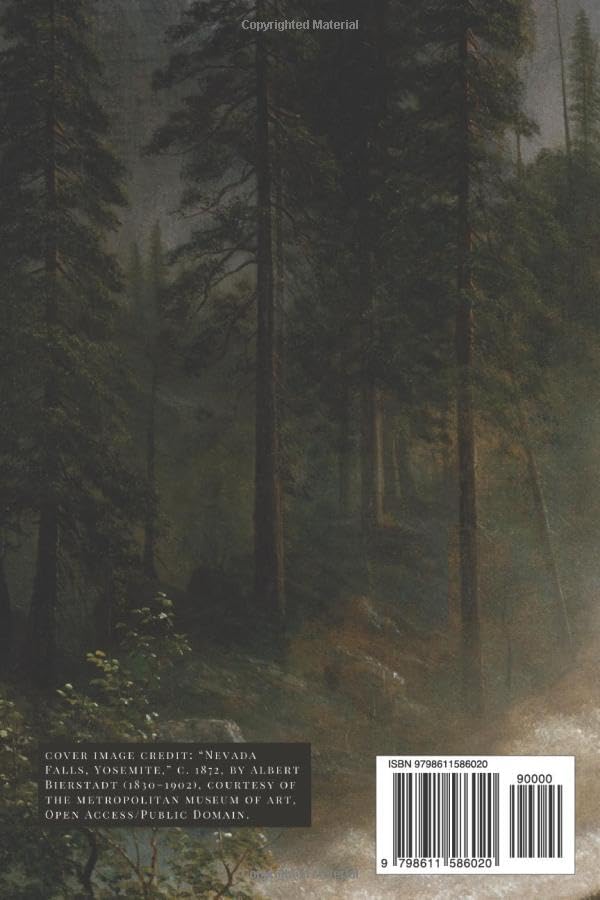


White Fang
K**T
Thrilling companion read to "Call of the Wild"
Probably one of Jack London's most famous works, second only to "Call of the Wild," "White Fang" is, in many ways, both similar and opposite to "Call of the Wild." Both stories take place (mostly) in Canada's far north, and both show the capacity for both cruelty and kindness that exists in humankind. But while "Call of the Wild" is about a dog who is driven to embrace his inner wolf by the circumstances of its life, "White Fang" is instead about a wolf who finds his life shaped by the various men he encounters. And it's an often-brutal but thrilling and even beautiful story.White Fang, the sole survivor of his litter and three-quarters wolf (his mother was half-wolf and half-dog), is accustomed to a life in the wild... so when he and his mother are captured by a Native American called Grey Beaver when he's still a pup, his first instinct is to flee. But he soon learns that trying to escape his new master means a beating, and so he reluctantly stays with Grey Beaver's camp. What follows is a brutal education in learning humanity's ways, trying to survive the bullying of the other dogs in the camp, and carving out his own lonely niche in the pack hierarchy. And as he grows up and his ownership changes hands, he learns that the only way to survive is to be as vicious and hard as the men who own him. But when a sympathetic dog musher buys him, can a kind heart and hands make up for years of cruel conditioning?London's writing can come across as a bit stodgy and slow in comparison to modern-day writing, but I find that it can be both thrilling and thoughtful. He describes the Canadian wilderness with great care, showing both its beauty and its ferocity, and does the same with both the animals and the people who inhabit it. And he's quick to point out how such a wilderness can harden both men and animals to a terrible degree... but that a capacity for kindness still exists regardless.The one thing that DOES make the writing a bit uncomfortable is some inherent racism (White Fang thinks of white men as being superior to Native Americans), but I take this more as a sign of the times in which the book was written than anything else. Also, if animal cruelty is a difficult subject for you, take care reading this book -- it doesn't shy away from the beatings, starvation, and other atrocities mankind can and does inflict on the animals it takes into its care. But it also shows how a kind and understanding soul can mend some of this damage, and go a great length towards making an animal's life better.A great companion read to "Call of the Wild," "White Fang" can be a gut-wrenching read, especially if you're an animal lover and can't stand animal cruelty of any sort in a book. But it's an affecting book nonetheless, and shows just how much a harsh or a kind hand can shape any creature... even a human.
G**U
another Jack London fantastic book
Although not as good as the Call of the Wild, in my humble opinion, this book is also great; and as the former, you fall in love with the animal
M**O
White Fang - What An Adventure
Somehow, someway I managed to escape the mandatory reading of this book in school. And, for some reason, I've never seen any movie about it, either. I don't know how I would have felt about "White Fang" if I had read it when I was 12, but at 51 I was fully captivated!White Fang is part dog, mostly wolf, born to the wild, but domesticated to man and not always treated well. The tale is told to his perspective, so dialog is sparse and the point of view is very interesting. How does a wolf/dog think? How does he perceive his world? Does he simply act on instinct, or can he reason to some degree? The credit to Jack London is that he doesn't really give White Fang supernatural powers, nor make him anything more than what he is: an animal who acts as such.Yet, through all that White Fang experiences - the good, the bad, the horror - you do NOT want to give up on this guy! Some parts of this book were, and are, very difficult for an animal lover to read. I love animals, and have a special fondness for dogs, and there came a time when I doubted I was going to be able to finish this book. Yet, I am glad I perserved to the end and stayed true to White Fang and to the man who becomes the hero in the book, Weedon Scott.Among the complaints of this book is that Jack London was too descriptive and wordy. To some that might be, but Mr. London knew how to set the scene and make it come alive. The reader is in the Yukon, in the woods with the indians, hidden in the lair with White Fang and his parents. One can easily visualize all of this in what really is a very short novel. Another complaint I've read is the language used. Mr. London wrote this book in 1906, and the vocabulary used is evidence of that. But the writing is simply beautiful, and some words, while a bit archaic, just add to overall mood of the book, in my opinion.I thought this was a wonderful tale of a wolf's life, with all the happiness, trials, horrors, sadness, love, and redemption one could hope for. For me, White Fang was a character worth cheering for!
S**.
True text, strange illustrations.
Highly recommend down loading the samples before buying. This edition was the third or fourth I sampled before finding this edition with text true to the print edition I have. this edition is a good read. It is marketed as "illustrated" and while technically this is true, many of illustrations had nothing to do with the story. It was as if some random photos were added so the book could be sold as "illustrated".
A**R
True art
A wonderful journey, master storytelling that brings out real emotion. Truly takes you into the mind and life of White Fang. Read it as a teenager, appreciated more as an adult.
D**L
Avaliação do produto
O livro está em perfeitas condições.O produto estava muito bem embalado.
H**Y
A very enjoyable read!
I got my book a litle damaged. But for such low price, the story is definetly worth your money. A very interesting book. It's worth your time!
A**E
Top!
Top!
K**É
Even Better Than "Call of the Wild."
5 stars. I read this right after finishing The Call of the Wild. I enjoyed Call of the Wild, but I loved White Fang.This book starts up with an echo of Call of the Wild, with two men carrying the body of a young Englishman back to civilization after his death under circumstances unknown to the reader. It is the dead of winter, and a time of wild famine; a wolf pack begins hunting the two men and their dogs. Thus we are introduced to one of the main characters—a half-wolf, half-dog female with two suitors. In the course of time one suitor becomes a mate, and little White Fang, quarter-dog and three-quarters wolf, makes his appearance on scene. Once again we are plunged into the Canadian wilderness—but this time it is the forest primeval. It is fascinating to see the development of the wolf cub from birth to a few months, and see how the little wolf family operated. Eventually, when his mother Kiche returns to her Indian masters, White Fang discovers civilization and becomes initiated.London draws a clever portrait of men, women, and children in these few characters. There is Mit-sah and the other children, cruel and revengeful; Kloo-kooch and the other women, tenderhearted and scolding; and Gray Beaver, stern and just, demanding the utmost obedience but caring for his animals. Beauty Smith and his pals represent the worst evil that can befall a dog in his masters; and I felt a repulsion for him that is not easy to describe, even if London seems to try to shrug a shoulder over him and declare he can’t help who he is (pure rubbish, by the way). And then there is Weedon Scott. I loved Scott for the real love he displayed to White Fang—a love that trusts, sacrifices, and desires the best for its object. His family, too, was delightfully wholesome and Mike is a dear fellow. White Fang himself is far more loveable than Buck—a sweet pup grown to a fierce dog, then a wild fighter, and finally a passionately loving pet. He is a fascinating protagonist.The plot is a strange and devious path, from the stern Indian village to the wicked dogshows to the sunny Southland. There were many bits that hurt—many bits that made me stop to think—many bits that were poignantly beautiful. It was a portrayal of life, real and passionate and complex and fascinating. The humour is excellent; the writing is splendid; and the ending is perfect…This book is almost the complete opposite of The Call of the Wild. While that book deals with a domesticated, “civilized” dog being gradually made completely wild and untamed, White Fang is about a wild wolf being tamed and domesticated. His misty thoughts on humanity and civilization are striking. While The Call of the Wild focusses on the might of nature against mankind, White Fang deals with the strength man himself has—the God-given ruling over creation, the intelligence and emotions and power that holds sway over beasts. And most of all, it shows the redeeming strength of love and trust…Content: Language & violence; evolutionary mindset.A Favourite Quote: “‘They’ve half got you a’ready, a-talkin’ like that,’ Henry retorted sharply. ‘A man’s half licked when he says he is.’”A Favourite Beautiful Quote: “Dark spruce forest frowned on either side the frozen waterway. The trees had been stripped by a recent wind of their white covering of frost, and they seemed to lean towards each other, black and ominous, in the fading light. A vast silence reigned over the land. The land itself was a desolation, lifeless, without movement, so lone and cold that the spirit of it was not even that of sadness. There was a hint in it of laughter, but of a laughter more terrible than any sadness—a laughter that was mirthless as the smile of the sphinx, a laughter cold as the frost and partaking of the grimness of infallibility. It was the masterful and incommunicable wisdom of eternity laughing at the futility of life and the effort of life. It was the Wild, the savage, frozen-hearted Northland Wild.”
N**N
Fastastic
An astonishing journey of a dog from civilized to primeval period. It shepherded me right into the nature which is unbridled, savage and frightening. This anthropomorphic novella delineates Darwinian evolutionary theory of the survival of the fittest. It is not the strongest or the most intelligent who will survive but those who can best manage change. Magnification of Philosophy of naturalism is portray in most simple and lucid way surrounded by a gripping plot.
Trustpilot
3 days ago
1 week ago